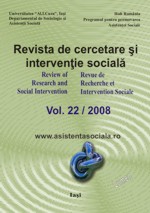
L‘evolution des conceptions de la petite enfance (1945-2000)
The study or the evolution of knowledge on infancy displays links with, on the one hand, the conceptions of parenthood and, on the other hand, the technical, social, political and ideological changes as well as the changing standards of moral behaviour. Since the Second World War, several abrupt changes, be it epistemological political or social have punctuated this evolution. The emergence of the theory of hospitalism and of emotional deprivation, due to the damage caused by placing babies deprived of their parents in special institutions, marks the appearance of psychoanalysis into paediatrics through paedopsychiatry. From now on, it will become impossible to ignore the importance of the affective dimension for the baby. But this importance creates an overestimation concerning the relation ship between mother and child, which is used to delegitimize collective child care as well as to marginalize the fathers. Il wasn't until the late 60s and the protest movements that this excessive maternal pre-eminence was gradually called into question and that collective child care and the presence of other chidren along with paternal competence was brought back into favour. The latter asserts itself, from the 80s onwards, through both clinicians' and development psychologists' publications. And this is precisely when artificial insemination brings aboud deep changes and leads us to question the problem of filiation again. At the end of this evolution, the picture of the child which is based on social research and popularised by the media is that of a totally fulfilled, successful child who is decisive and vulnerable. This picture questions our society as to conception of the person it underlies.
More...